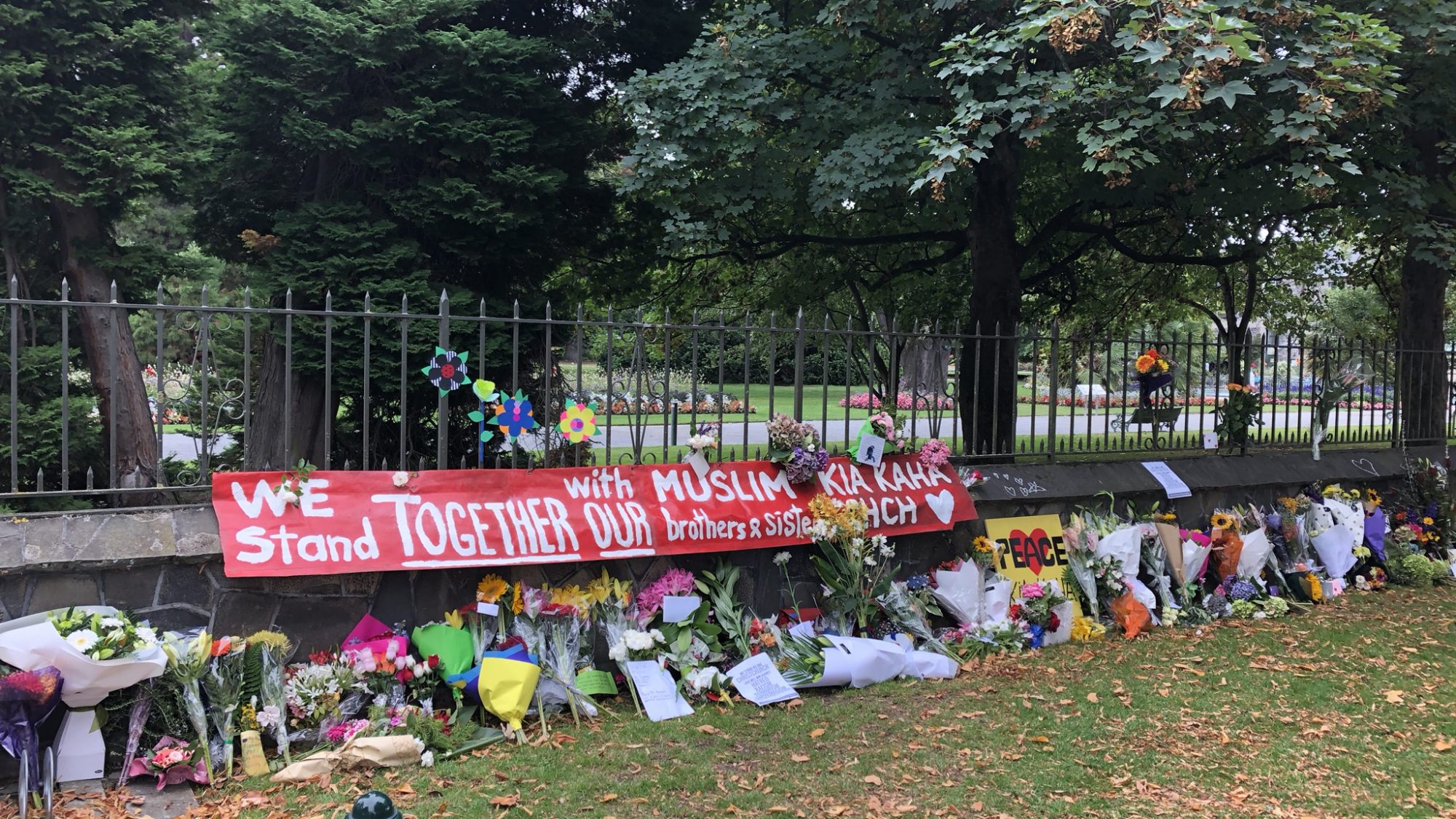
Title: Right-Wing Violence in the West
Violence carried out on behalf of white supremacist and xenophobic causes has resurfaced throughout much of the West. Unlike earlier episodes of right-wing violence, the current surge reflects the appearance of a Euro-American network of groups stitched together by social media and common fears.
In the immediate aftermath of World War II, few observers could have imagined a revival of right-wing extremism and an accompanying surge in violence. Key figures in defunct fascist and Nazi regimes were either in hiding or on the run while some of their underlings opted to feign cases of amnesia. Formerly Nazi-occupied countries held purge trials for those accused of collaborating with the Germans, like Vidkun Quisling in Norway. In France and Italy, vigilante justice prevailed as resistance fighters carried out reprisals against their erstwhile tormentors.
Seventy-five years later, individuals and groups animated by white supremacist, xenophobic, and neo-Nazi beliefs have become sources of central concern to intelligence and law enforcement agencies in Western democracies. From the Nordic Resistance Movement in Scandinavia to the now largely defunct Golden Dawn in Greece and Cyprus, far-right groups have been responsible for a long list of attacks on immigrants from the Middle East, South Asia, and Africa.[1] Western Europe’s small Jewish communities have not been exempt from violence either. On the other side of the Atlantic, the United States faces numerous violent right-wing groups. In 2019, the Southern Poverty Law Center identified 940 “hate groups” active in the country. Some of the most virulent groups are heavily armed, with leaders seeking to launch a civil war for the restoration of white racial dominance.
This violence is not a novel phenomenon; both sides of the Atlantic have seen recurrent right-wing violence since the end of World War II. There were serious episodes of neo-Fascist violence in Italy during the 1970s, backlash against the threat of a Communist ascendency;[2] the Secret Army Organization launched a terrorist campaign in France in the early 1960s after De Gaulle’s decision to negotiate for Algerian independence;[3] and the Ku Klux Klan and other racist groups reacted to the civil rights activism of the 1960s by conducting numerous violent attacks, largely concentrated in the Southern United States. These were relatively discrete episodes, largely unrelated to one another. The current wave of right-wing violence stands out, not only because it is the most severe, but also because it cuts across national borders. It is a widespread and enduring Euro-American phenomenon, propelled by the Internet and various social media platforms.
The Great Replacement
The Euro-American radical right is bound together by certain common perspectives: the theory of the “Great Replacement” is among the most common. Originally popularized in 2011 by French writer Renaud Camus, the argument posits that low birth rates of white European and American populations are facilitating their replacement by non-white often-Muslim immigrants from developing nations. According to this ideology, this demographic shift constitutes a “gradual genocide” of the white population of these Western nations as they lose the demographic majority to populations they perceive as racially inferior outsiders.
For those who subscribe to this theory, this societal transformation is not a coincidence. Rather, they believe it is the product of a conspiratorial plot organized by any number of alleged perpetrators—often blaming a globalist economic elite (like the attendees at the annual World Economic Forum meetings in Davos) or a secret Jewish cabal. In either case, the supposed conspirators’ goal is the destruction of the Western tradition and the European people.
Democracy Under Threat
The most lethal acts of right-wing terrorism to date have been carried out by “lone wolves,” who act alone without direct connection to an organized terrorist group. These individuals were often inspired to act by exposure to Internet messaging rather than direct personal experience. A few notable examples in the last decade include mass murders in Norway, New Zealand, and the United States. In July 2011, Norwegian Anders Breivik murdered seventy-seven people, including more than sixty young Social Democrats, attending a summer camp on an island near Oslo. In October 2018, American Robert Bowers killed eleven worshippers at the Tree of Life Synagogue in Pittsburgh, Pennsylvania.[4] In March 2019, Australian Brenton Tarrant murdered fifty-one worshippers at two mosques in Christchurch, New Zealand. And in November 2019, American Patrick Crusius killed twenty-three shoppers—targeting Mexicans—at a Walmart in El Paso, Texas.
In addition to these lone wolf mass killings, another worrying trend has been the surge in attacks on public officials. In Germany, local and state officials thought to be sympathetic to allowing increased immigration from the Middle East and North Africa have become targets of death threats and worse. In 2015, Henriette Reker, candidate for mayor of Cologne, was stabbed by a neo-Nazi because of her support for Chancellor Angela Merkel’s welcoming attitude towards Syrian refugees. Walter Lübcke, a local official in Kassel, was assassinated for the same reason. Observers report that many Germans now fear running for local office, fearing they will be targeted by violent far-right groups.
As in Germany, far-right groups in the United States now threaten public officials with whose views they disagree, such as public health measures to limit the spread of the COVID-19 infection, rather than immigration. In some cases, officials who impose or simply advocate mandatory mask wearing or social distancing have been targeted by death threats. In October 2020, the FBI and local law enforcement officials in Michigan arrested over a dozen heavily armed militia members who were planning to kidnap the state’s governor and put her on trial for treason over the public health measures she instituted to mitigate the spread of COVID-19. There was a nascent scheme to do the same with the governor of Virginia.
In the context of the 2020 U.S. presidential election campaign, a number of far-right organizations have come forward to express their support for a violent confrontation with what they perceive as dangerous left-wing protesters. Most notable are the Proud Boys and Oath Keepers, heavily armed groups who have already demonstrated willingness and capacity to conduct violent attacks in defense of the Trump presidency. The most spectacular of these attacks was the January 6, 2021 violent assault on the U.S. Capitol by hundreds of Trump supporters, including key figures in both groups.
None of these developments bode well for democracy on either side of the Atlantic. In Germany, at least, Merkel was a fierce defender of her country’s democratic values. It is imperative that President Biden take the same approach, a drastic departure from that of his predecessor.
All of the countries included in this analysis are long-standing democracies, none of which (except Greece) have reverted to authoritarian rule since the late 1960s, despite a few close-calls. The Western democracies vary, though, in the severity of the challenges posed by right-wing violence and how their governments have responded to those threats. One would expect that the more serious the threat, the more substantial the government’s reaction to it would be. In practice, however, this is not the case.
Though all Western democratic governments are capable of confronting threats posed by right-wing violence, each is uniquely constrained by its particular constitutional framework. Both the Italian Constitution and the German Basic Law expressly prohibit the reconstitution of political parties and other extra-parliamentary groups that wish to revive Nazism or fascism. Either by court ruling or administrative action, the governments possess the ability to dissolve these groups. For example, Germany established a Federal Office for the Protection of the Basic Law which monitors the activities of the country’s far right. On the other hand, Italian enforcement of a similar provision (Article 12 of the Italian Constitution) has not been as effectively monitored, but occasionally the Italian authorities have successfully dissolved neo-fascist groups like the New Order. Regarding hate speech, the German government made public display of the swastika and other Nazi symbols a punishable crime. In Germany and elsewhere in Europe—like France and the Netherlands—public denial of the Holocaust has been defined as a crime.
Legal prohibitions alone are not sufficient to eradicate these extremist groups, which have demonstrated the ability to adapt to government scrutiny and repression. In Germany, for example, the National Socialist Underground murdered close to a dozen immigrants over a number of years before members were identified and arrested. Even when repression of right-wing extremist groups is successful, factions regroup after a period of reformation. In 1994, the German government dissolved a neo-Nazi group, the Wiking-Jugend (Viking Youth), and its leaders responded by creating a new group with a new name, active until it too was dissolved. Likewise, in Italy the New Order was succeeded by the Black Order.
American Exceptionalism
The First Amendment of the U.S. Constitution renders the United States something of a deviant case. The First Amendment clause protecting freedom of association constrains the ability of the U.S. government to dissolve political organizations and hate speech, as long as they do not directly threaten specific individuals. Extreme right-wing groups enjoy constitutional protection as long as they do not engage in physical violence. At the 2017 Unite the Right rally in Charlottesville, Virginia, marchers freely displayed Swastika banners and other Nazi symbols.
Gun control represents another area of distinction between the American and European approaches to combating right-wing violence. After a series of school shootings in the United Kingdom and Germany, like the 1996 shooting of a dozen primary school children in Scotland, the European Union stipulated a set of guidelines to govern how and under what circumstances individuals might lawfully possess firearms. All EU member states have enacted gun control legislation in conformity with these guidelines. The United Kingdom, for example, has criminalized the possession of handguns and semi-automatic weapons.
The United States, on the other hand, is one of three countries (with Mexico and Guatemala) whose constitutions include a right to bear arms. Despite the frequency of devastating spree killings in the U.S., the Second Amendment has been invoked repeatedly to block efforts to limit access to weapons that among the European democracies would constitute serious law violations. The American gun lobby has successfully blocked congressional efforts at reform. As a result, the United States stands alone among Western democracies in per capita gun ownership and gun homicides. More insidiously, paramilitary militias and other far-right groups venerate firearms ownership as a fundamental Constitutional provision from which all other enumerated rights, and manhood, depend. Consequently, right-wing extremists see threats to gun rights as a constant existential challenge.
The U.S. government has done little compared to its European peers in limiting the resurgence of the far right. Partly thwarted by interpretations of its own constitution, the United States offers a more hospitable environment for right-wing violence than Western European democracies and has ceded leadership in this regard to its neighbors across the Atlantic.
[1] Bouhana, Noemie, Stefan Malthaner, Bart Schuurman, Lasse Lindekilde, Amy Thornton, and Paul Gill. “Lone‐actor terrorism: radicalisation, attack planning and execution.” The Routledge Handbook of Terrorism and Counterterrorism (2017).
[2] Weinberg, Leonard, and William L. Eubank. The rise and fall of Italian terrorism. Routledge, 2019.
[3] Assoudeh, Eliot, and Juliette Legendre. “Security challenges for France’s Fifth Republic.” Routledge Handbook of Democracy and Security (2020).
[4] See for example, Charalambous, Giorgos, and Panos Christoforou. “Far-right extremism and populist rhetoric: Greece and Cyprus during an era of crisis.” South European Society and Politics 23, no. 4 (2018): 451-477.
…
Leonard Weinberg is Foundation Professor Emeritus at the University of Nevada. Over the course of his career he has served as a visiting professor at King’s College, University of London, University of Haifa and as a visiting scholar at the University of Florence and UCLA. He has also been the recipient of both Fulbright and Guggenheim research awards. Weinberg has been the author or editor of some twenty books, the most recent one being A History of Right-Wing Violence in the Western World Since World War II (2020).
Eliot Assoudeh is an adjunct assistant professor at CUNY Brooklyn College and a freelance data storyteller. His research interests are modern ideologies and religion, modernity and religion, social movements, identity construction, politics and emotions, and computational propaganda. His articles and analyses have appeared in Religion Compass, Research in Social Movements, Conflicts and Change, Fair Observer, Open Democracy, and National Security Forum, and on the BBC Service.
Image Credit: Paul Cull, CC BY-SA 4.0
More News

Critical maritime infrastructures (CMI), and in particular undersea communication cables, are increasingly under threat of attacks by malign actors who benefit from asymmetric capabilities and jurisdictional complexities in the maritime…

This article explores how the Palestinian crisis and the death of the two-state solution endangers the Hashemite Kingdom of Jordan. It illuminates the complicated relationship between Jordan, Israel, and Palestine…

This article explores the uncertain future of Arctic governance amid shifting global geopolitics. It argues that whether Washington and Moscow opt for confrontation or cooperation, multilateralism in the Arctic…